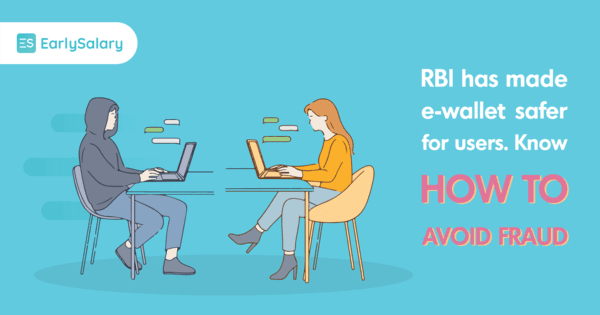RBI Has Made e-Wallet Safer For Users. Know-How To Avoid Fraud!
Reviewed by: Fibe Research Team
- Updated on: 10 Apr 2023
Reviewed by: Fibe Research Team

Highlight: Learn how to set up an e-wallet with the help of RBI guidelines for a safer and user-friendly experience.
The Reserve Bank of India recently announced its new project linking its two digital systems together to keep up with India’s evolving digitised payment practices. They aim to link the UPI (Unified payment interface) to their PayNow application. The RBI aims to put this project into action by July 2022. The UPI-PayNow link will make a strong infrastructure for the cross border payments between India and Singapore.
Fintech companies are emerging rapidly in India due to many reasons – like demonetisation in 2016 and the widespread of COVID 19 virus all over the world. At the time of demonetisation in India, people were urged to use plastic money instead of paper money which pushed people out of the institutionalised practice of cash transactions. Furthermore, there was a drastic hike in digital payments after India (along with the rest of the world) went through the devastating pandemic in 2020. Due to safety reasons, the adoption rate of digital payments grew automatically, making people use e-wallet applications more. The entire nation was changing its day-to-day finances, leading the cashless life and moving to digital UPI-based payments, among other modes.
There was a noticeable rise in fraud while the entire nation was shifting to cashless routes and made people question the means of digital payments. According to a survey, 71% of the consumers showed skepticism while switching to digital payments, and around 31% of participants of the e-wallet users were victims of financial fraud in 12 months. There was also a rise in KYC scams since the Pandemic began (Know how to avoid KYC scams). Using e-wallets can be a little overwhelming and possibly scary at times, especially for people who have been relying on cash for every small transaction they make.
While empowering e-wallets in India, the RBI circular states that the liability of the frauds will be taken care of by the e-wallet company. However, the customer has to report the case of a fraudulent transaction within 3 days to incur the loss. The timelines set for refunds allow the customer to take action accordingly, not to bear any loss. Any genuine loss reported will be refunded to your e-wallet within ten days after the report. They also have an obligation to resolve your issues and complaints within 90 days, according to these rules.
RBI’s guidelines for safer transactions

RBI penned down a list of new rules that everyone should keep in mind while using e-wallets to avoid such events. Here are all the points you need to know mentioned in the circular that RBI issued in 2019.
RBI’s decision to empower e-wallets will help customers transfer and receive funds and enable them to receive and send money from one company’s wallet to another. Although the RBI has set up these rules and regulations, it should be noted that frauds are inevitable and can only be avoided when people are aware of their transactions. It should also be our responsibility as consumers to report any fraud calls and messages to help build a better system.
However, if you’re a victim of one such fraud, and need the funds before the wallet service can take action, avail yourself of a salary advance with Fibe.
Download the personal loan app here, or simply log in to our website and be a part of the #OneSmallStep experience.